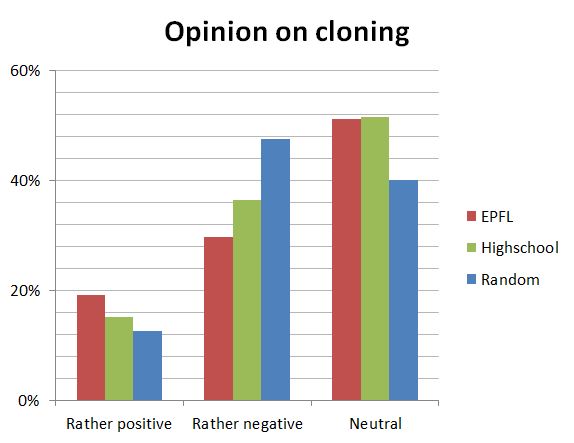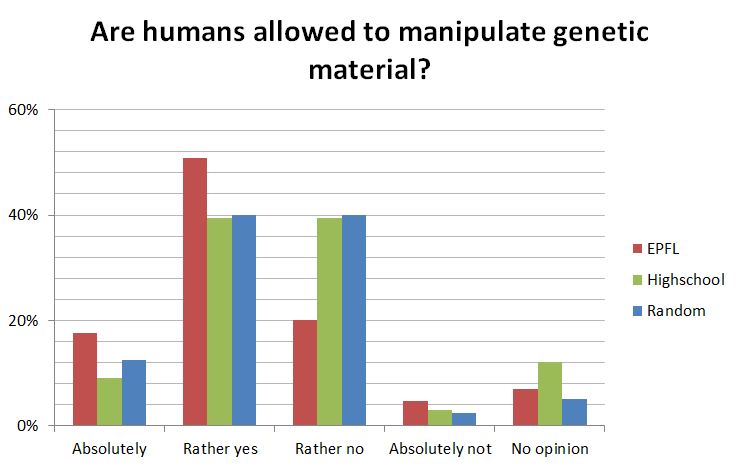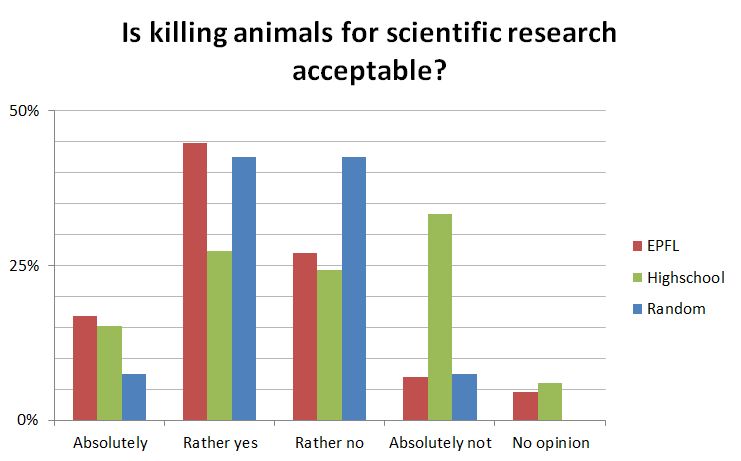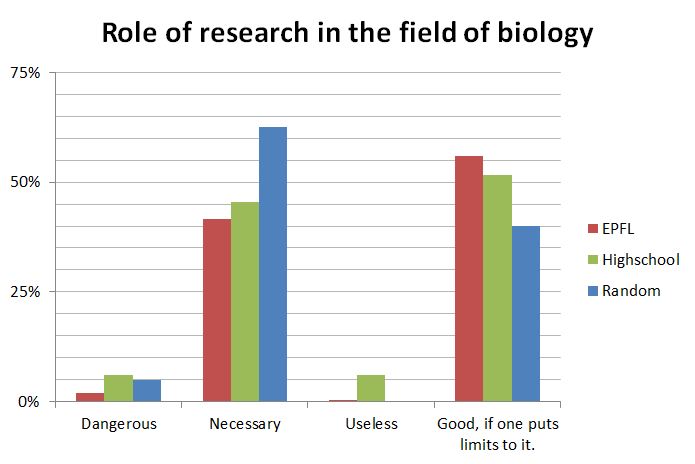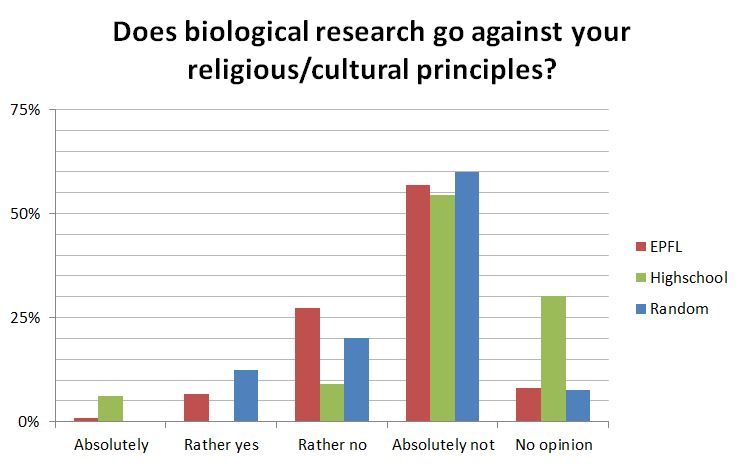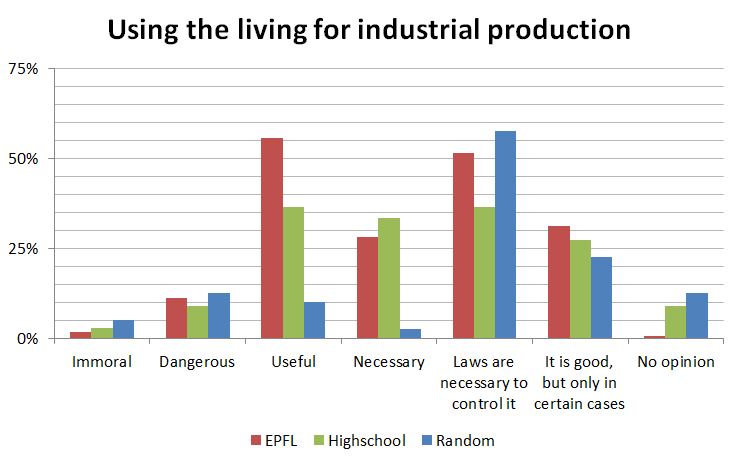Find the survey [http://kwiksurveys.com/app/rendersurvey.asp?sid=7swv7y7rd87kysz19907&refer= here].
Contents |
Three populations
We decided to analyse the answers coming from three distinct populations. The first one is a random population surveyed at the [http://www.salondulivre.ch International Fair for books and press] in Geneva , with people of all age and background. The second population are 2nd year highschool students from [http://www.gymnasedebeaulieu.ch/home/ Gymnase de Beaulieu] Lausanne which have chosen a biological orientation and the third population are students from [http://www.epfl.ch/ EPF Lausanne] (Bachelors and Masters) coming from all faculties.
The purpose of this analysis is to compare populations with increasing the potential exposure to genetic engineering. A random population is less likely to have heard of synthetic biology than biologically oriented high school students and these highschool students are less likely to have enough depth in the field than EPF students which are in an academic field.
Results
General knowledge
In order to evaluate the general knowledge our three populations have , we analyse the next 6 questions.
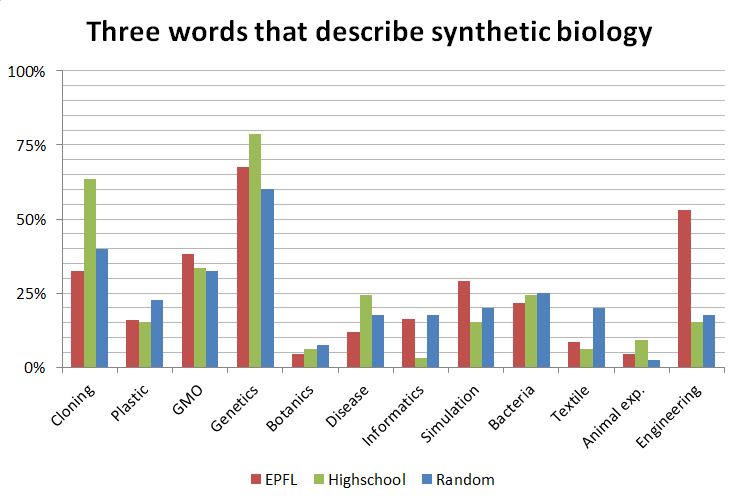
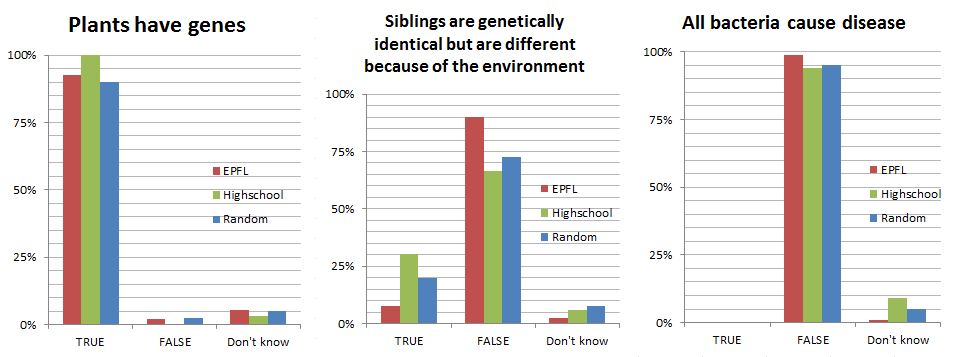
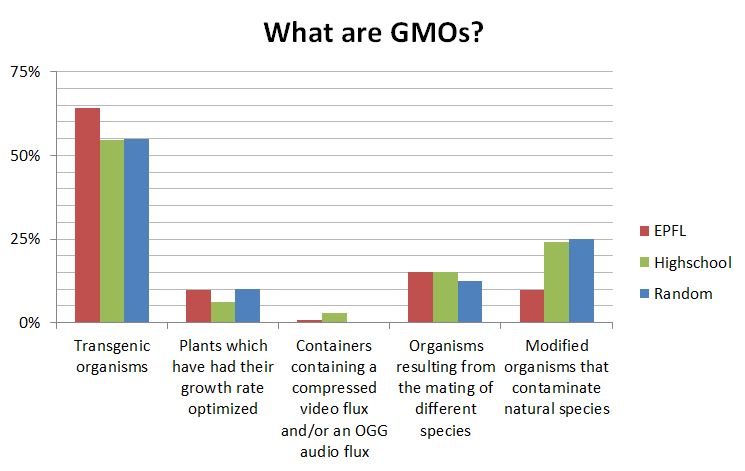
Ethic issues
The last 6 questions address ethical issues and fears people might have like cloning, genetic manipulation and using animals or other living organisms in industry or research.
 "
"
